“This time, I really don’t know when I’m coming back.”
“You always say that, and then you come back.”
This ‘always’ is what I deprive myself of, and what I so much appreciate finding elsewhere – continuity. My continuity is in walking Yart and Kebride (which means ‘match’ in Arabic) somewhere at around two in the morning, especially since I managed to cope with them on my own. Although Kebride thanked me with eating my slippers, that I gained back with such a battle from the Egyptian minibus driver. Continuity in the fact that at exactly four o’clock, Zulu, the only cat in the world to which I am not allergic, climbs onto my sofa in the open air.
“You really aren’t allergic? That’s just more proof that he is a devil. You know that there are no black cats in Arab houses. It’s more than superstition. People here sincerely believe that a demon lives within these creatures.”
“Waheed, if black cats are not kept in the homes, then where have they all hidden themselves? Is there somewhere a place where all the Arab black cats live?”
“You know, I think about this place myself.” 
Continuity in returning to a place where no-one will meet me and give me a lift to the airport, because I am arriving to see everyone, and therefore not to see anyone individually. Although no-one will believe this until now, how hard I would try to prove the opposite – both to them and to myself.
I will return to Amman, in order to sit on the porch in the morning, and straight after the ‘good morning’ from the first person who goes out of the house, to hear, “Are you happy?” And waiting for my answer, “Tell the most interesting story of something that happened to you.”
“There isn’t any most interesting thing. It’s the essence of their combination, and most of all in the people – the heroic, the ordinary, the decent, the boring, the special and the not very special; in the musicians, the bloggers, the journalists, the activists, the politicians, the pseudo-politicians.”
“Tell us about the most interesting person of all the ones you met.”
But I keep silent, because the most interesting are always those who are now right here with me.
Though I’m not a drinker I will return to look how whiskey glasses dance being accompanied by voice of a muezzin. I will return to try to wash some of kettles and pots, and the incredible amount of empty glasses
“Why are you doing this?”
“I just like making this place a bit cleaner.”
I will return, in order to finish the very first day by shooting in slow-motion. That first day is still unknown, but today there is another local with whom we immediately came up with our own way of greeting each other by squeezing together our twisted fingers; after four years, he will shave off his long black curls. First, he will shave himself against the background of my favourite mosque, and then finally, sitting in front of almost the same painting that has been hanging in my home for half a year. It was drawn by another aready good friend, who barely speaks English, but I believe understands me the best of everyone. This cinema-shaving could have lasted 10 minutes, but lasted until 4 am, because during the first hour alone we were trying in vain to hang lights on the beach umbrella.
Beheading John the Baptist
“How does he look? Remind me…”
“He has long curly hairs.”
“Are you kidding me? Each of you has long black curly hair.”
Perhaps because during my childhood, in the period of perestroika, there were not enough colour books. The most colourful were thick volumes with reproductions of Caravaggio and Titian, which my cousin bought up from second-hand book dealers. I used to spend hours flipping through them, looking at the incomprehensible for somebody growing up in an atheist country paintings of biblical motifs, which depicted ideal people – the apostles. In Orthodox icons, the apostles were just faces. With reproductions it’s a different matter. I know that they drew them in their own likenesses, first of all – like Italians. But all of them had long black curls. So when I look at my people of Amman – I must admit that not all of them, but some of them are still those same sinners – behind those views I see the same faces from the reproductions.
It might be assumed that I classify each of them according stereotypes (“I think you stereotype me”). Surely, they think I have stereotypes like these in mind: ‘the dreamer’, ‘the animal lover’, ‘the life and soul of the party’, ‘the silent romantic’, ‘the wise man’, ‘the rogue’, ‘the funny guy’, ‘the man of fragile mental construction’, ‘the hermit’, ‘the bastard’, ‘the talented bastard’, ‘the genius egoist’, ‘the mediocrity’, ‘an occasional guest in this house’, ‘the seducer’, ‘just a loser’, ‘the hard worker’, ‘the martyr’. In fact, these are all completely untrue.
My stereotypes are different. This one – well, he’s just John the Baptist, whose head Salome is holding on a tray. Even he would not understand that. How can you tell to somebody that he looks like a beheaded head on a tray? This one looks like Peter, just as the third cock was crowing. This one would make a benign Judas. And you will not tell that girl that she resembles Mary Magdalene just before the angry mob wanted to stone her.
Maybe the Titians drew their apostles from the Italians, but I know that they lived in this land, on the banks of the Jordan.
So I do not know how to ignore irrelevant detail. I have long wondered why, in these dozens of boys’ apartments – spacious and tiny, pretty messy by my standards, maybe lacking soap, toothpaste, toilet paper and a dozen useful things – there is always a huge bottle of hair conditioner to be found. Just because otherwise, you could never comb it. What did they do when the only thing they could do was wash in the Jordan?
A matter of choice
“Why are you always in a hurry? You yourself say that you will miss this place just because you can sit, watch and listen, but you aren’t doing so. The whole idea is that we just know how to live, despite all the difficulties that exist on this earth, despite all these terrible things which happen one after another, we can just sit back, watch, live and appreciate what we have, and not strive for something more.” – So I was told, a few hours before my departure six months ago, by the author of the best graffiti in this city, where graffiti is prohibited.
“Urwa, but it’s not working with me! Urwa, it’s not working! Because everything that has been happening to me is happening just because I don’t sit still. Because in order to speak with you now, just to sit, listen, watch, I had to take so many illogical steps and unnecessary actions.”
I flew to Jordan for the first time to an unimportant two-day conference, organised by the British, for Iraqi, Lebanese and Jordanian civil society leaders in the field of ‘the rule of law’. I’m not Lebanese, or Jordanian; I have no connection to Iraq; I am not even British, and am not involved with introducing the rule of law. I just knew the British organisers, who had no reason to invite me, so I came on my own – even though I’d spent everything that I had on the ticket. I just hoped that I could at least start some kind of acquaintance with the region. I cannot say I’m a newbie here – after so many years of watching, listening, reading all these volumes on the history of the Arab world. And I can tell why Nasser is so beloved from Rabat to Sana’a, why leftists still curse the clever Sadat, and how much damage was done to Syria by the French. By then those Arab countries which I had so far visited were not indicative enough.
We stayed in one of the most expensive hotels in Amman, with an incredible number of buffets. The people seemed interesting, all these young leaders of NGOs involved in human rights, prisoners, women and conflict resolution. While the girls had handbags from Louis Vuitton, shoes by Armani, the guys had really expensive watches. There was the British lady lecturer on communications (who had even trained members of the British royal family in the art of public speaking, it seems, and had come at the invitation of her fellow organisers). She and I tried to find out from one of the girls – one of the leaders of a reputable NGO – how I could get to the Dead Sea by public transport. She replied that she knew a good five-star hotel, and could give me the phone number to a driver. She hasn’t ever using public transport in Amman. The person I found it easiest to communicate with in this conference was the Scottish gentleman – a friend of the family of the former leader of the British Labour Party. A retired military man, who had led units in Afghanistan, Nepal, Sierra Leone. A humble and nice man who casually admitted that still the only Jordanian who he had managed to communicate with was … His Majesty King Abdullah. They had been in the same group on military training courses for leaders of states and the highest army ranks.

By the end of the second day, the Landmark Hotel seemed like a prison. Of my own free will, I ‘paid for’ the room with an almost professional photo of participants, and during the lunch break I ran off to meet someone (who I’d already located in the place through the Internet), a film-maker and his friend, a student from Italy. Between the lines, I unobtrusively begged him to introduce me to some ‘real Jordanians’ and the most ‘politically involved’ ones. And when, near 11 pm, most of the participants had already left, we had a farewell dinner – me, the Englishwoman who had given eloquence lessons to members of the British royal family, and the retired Scot, who now knew a few more Jordanians than just His Majesty the King of Jordan. They were interesting and good people, to whom a nice expensive restaurant was suggested. In the taxi, I realised that I was not going anywhere with them, and I got out in the middle of the road to answer another call, to find a stone house with a broken window in the toilet, patched up with a piece of old pants.

I’ve found the place I belong to. I found I don’t belong to the place. I found I don’t belong to any place. This was my place. The place which I will never belong to, just as I will not belong to any other. I arrived there to stay. No matter they had repaired the window, and that everyone had moved from this house into another one (Of course later by chance I have met the new owner as well). They had moved into a two-story house on another hillside, where today there was some confusion among the residents of the different floors. So this time I had to find excuses in the middle of political debates to quietly move between floors by cautiously closing the small squeaky gate, going down the stairs, and pacifying the dogs at just the right time – and vice versa. Just in case, I don’t take the toothbrush out of my pocket, because although the doors in this country do not usually close, from time to time I’ve been unlucky, and most of the essential things and my supposed bed are in the one part of the house which is closed. And in general, I don’t always know which of the houses there will be more free space and less noise in tonight.
One of the friends recently brought a bag of meat for the dogs, which had been left over after a family dinner; he hasn’t put it in the fridge, and when he realised that it had gone off, he just threw it on the slope in front of the house. We later realised why the dogs had been whining so much that night – they had eaten up the rotten meat. I wasn’t there when the guys became aware of the stench. And also, I only heard about the hundreds of worms. They poured kerosene on everything and set fire to it. The worst and most weird is that rotten meat smelled like barbecue. There are various things taking place in Amman. And afterwards it smells like barbecue, though you know…
“It was just a bad joke! She is just a foreigner,” – I can hear behind the closed door.– “No, she’s not just a foreigner. She understands everything perfectly, she spent with us the whole day! She is just a racist!”
Then in March, we argued for half a night, and for another half we tried to understand each other, after having tried several silly methods – forty minutes for each one of us to explain in their mother tongue: for me in Ukrainian, and for him – Mr. Witty, the Great and Terrible, and most importantly (as he himself says), the smartest of all in this city, this country and maybe the world – in Arabic. It didn’t work. I was frozen out. Not by all of them. But that was enough not to be at home. Unfairly, I admit straight away.
After six months it took 5 second and a Tunisian rock star I returned to fix it. Curtains can be closed. Or opened. I earned it, as the best explanation, of why this city, where there really isn’t anything, is more authentic than all the others, and why it holds me here so firmly. And this is what I’ve just started to write about, as about this ‘civilisational conflict’ which turned out not to be so, to find another answer.
Great thanks to Jim Todd for incredible effort to translate my writing













































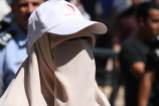
















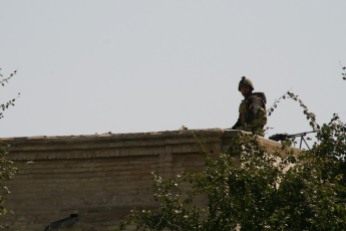





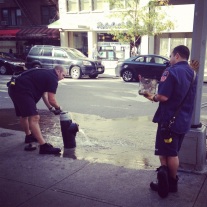
































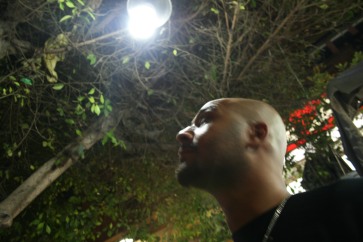









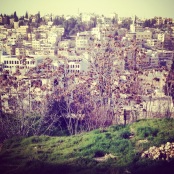










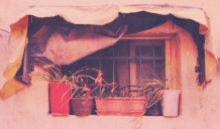




















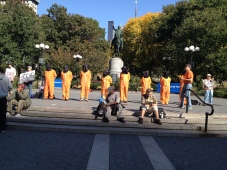


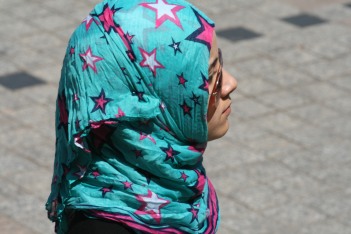




Leave a comment